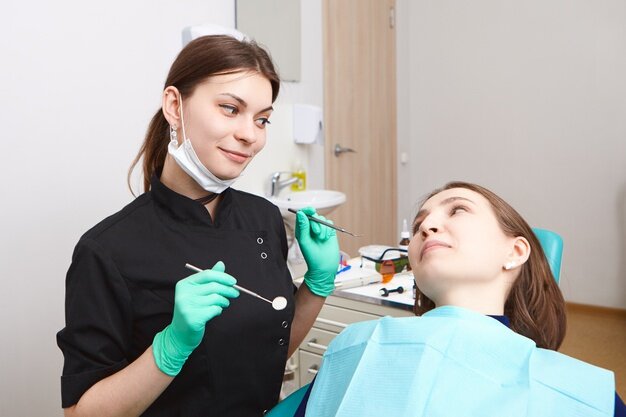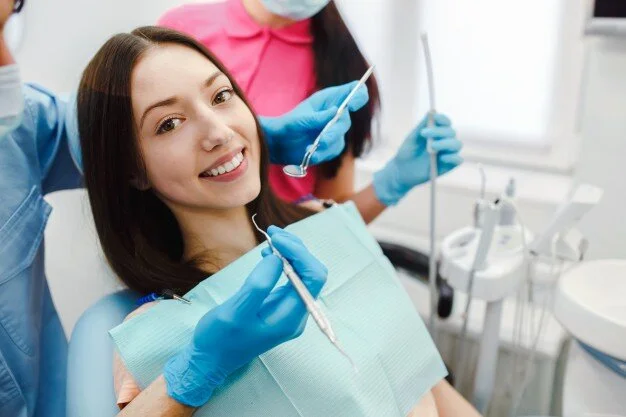There is a saying "Precaution is Better than Cure," that means taking care of your health to prevent the occurrence of the different illnesses is better than getting hospitalized later to take treatments to get rid of your illnesses. It is very rightly said.
The same thing applies when it comes to dental care. If you want yourself and your family members to be orally healthy for a longer time, it is very important to take precautionary steps instead of waiting for the illness to occur. It is so because precautions prevent the occurrence of dental illnesses.
Let's talk about dental emergencies and what they actually are and how you can prevent those dental emergencies from occurring. Let's take a look below.
What are Dental Emergencies and What Are Not?
Generally, people get confused about recognizing dental emergencies which further creates problems in taking the right action. Therefore, it is very important to rightly understand what exactly dental emergencies are and what is not so that you can take action accordingly. If you don't know this term, take a look at the below-mentioned definition.
Dental Emergencies- Any dental issue that is potentially serious and life-threatening requires immediate dental treatment to stop bleeding and alleviate severe pain and infection is considered a dental emergency.
Putting in simple terms, any dental issue that puts you in an uncontrollable situation (like severe pain and gums bleeding), and requires immediate dental treatment is a dental emergency. If you ever find yourself in a dental emergency, immediately contact emergency dentists in McKinney as this is the first and foremost action you need to take after finding yourself in a dental emergency.
Normal Dental Issues- Unlike dental emergencies, any dental issue that can be controlled or bear by the patient for a few hours and days (such as cosmetic dental problems) is not a normal dental issue and not a dental emergency.
Now, after reading the above-mentioned definitions, you must have an idea about what dental emergencies are and what are not.
Here are some of the most common examples of dental emergencies. Let's take a look.
Severe Pain
Gum Infections
Gum Bleeding
Tooth Sensitivity
Abscessed Gums
Broken Teeth
Gum Swelling
Dislocated Jaw
Mouth Sores
Knocked-Out Tooth
Tooth Warm
Some of the most common examples of non-emergency or normal dental issues. Let's take a look.
Discolored Teeth
Stained Teeth
Crooked & Crowded Teeth
Unaligned Teeth
Bites Disorder (Upper Bites, Lower Bites, Underbites, etc.)
And other Cosmetic and Orthodontic dental issues
How to Avoid Dental Emergencies?
Different dental emergencies occurred due to different reasons. For example, deficiency of Vitamin C and Vitamin K and improper flossing, improper teeth brushing, chewing tobacco, and cuts/abrasion from foods are the biggest reasons for gum bleeding. If we work on these causes and ensure we do that appropriately, we can definitely prevent the occurrence of gum bleeding. The same thing applies to other dental emergencies.
So, the best way to prevent the occurrence of dental emergencies is to stay proactive towards your oral hygiene and be cautious about all those causes that can lead to dental emergencies.
Do routine dental check-ups by meeting your concerned dentist at regular intervals. It is very important with the perspective of keeping your oral health in an optimal condition and keeping oral diseases away from you. During your visits to your dentist, your dentist will check up your overall oral health by examining loose fillings, crowns, tooth decay, tooth worms, infection, and gum diseases. If he/she finds any flaw in your oral, he/she will suggest to you what you should do. Of course, you will either have to take some treatments or some medicines as well as you have to do follow-ups during your treatment period.
Also, do not forget to properly take care of your oral health. It is much more important than anything else. To care for your oral health, simply, you will have to follow the general oral care tips including:
Properly brush your teeth two times a day
Properly rinse your mouth after eating and drinking
Do flossing to remove small food particles from the gaps of your teeth
Brush and floss after eating non-vegetarian foods
Use mouth freshener to keep your mouth fresh
Do not forget to clean your tongue
Be gentle while brushing your teeth as hard brushing can lead to gum injuries
Use a soft-bristle toothbrush with a fluoride toothpaste that is approved by the American Dental Association
Avoid alcohol-containing and acidic drinks
Avoid tobacco-containing products
Don’t eat too many sugary items like chocolates
If you follow the above-mentioned general oral care tips, you will certainly keep dental emergencies away from you.
Now, let’s talk about those dental emergencies that cannot be controlled by following oral care tips.
Dental Trauma
When a tooth gets chipped or knocked out, it is called dental trauma. Descriptively, it is a physical injury to teeth, gums, and soft tissues of the mouth such as lips and tongue. Generally, the most common causes of dental trauma are accidents, including falls & slips, vehicle collisions, and collision or fall during playing an outdoor sport. In some cases, violent incidents such as fighting or physical abuse are the causes of dental trauma.
Clearly, we don’t have control over dental trauma and it can happen anywhere and anytime without giving indications. That’s why preventing dental trauma is a bit difficult, but yes, we can take some safety precautions to keep dental emergencies away from us. Here are some safety tips:
Wear a mouthguard while playing an outdoor sport
Always keep a first-aid box in your vehicle
Always try to protect yourself as much as possible when you find yourself in a collision, fall, or slip






